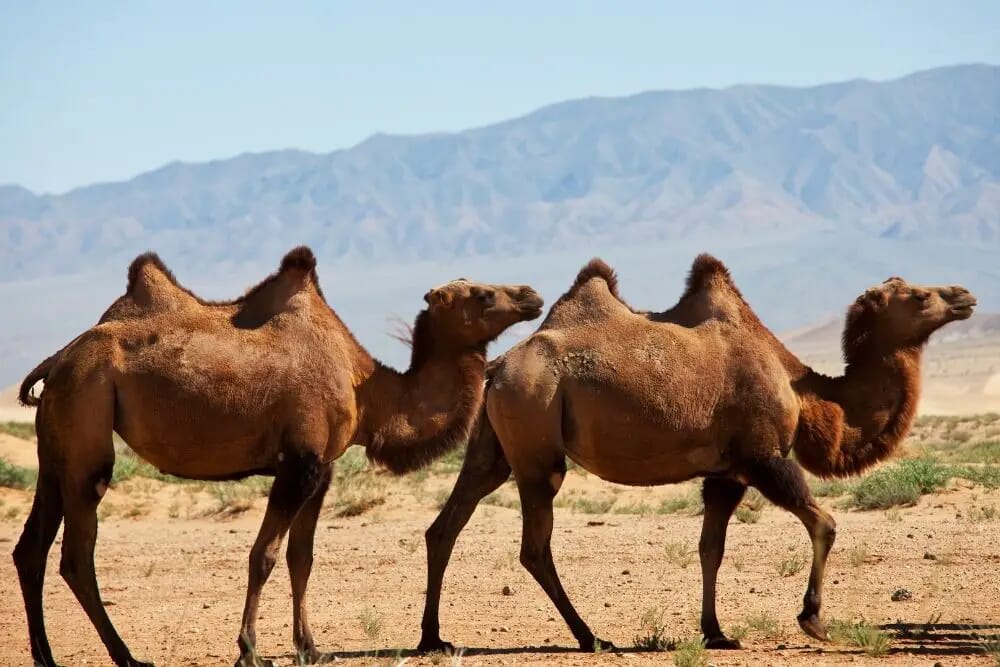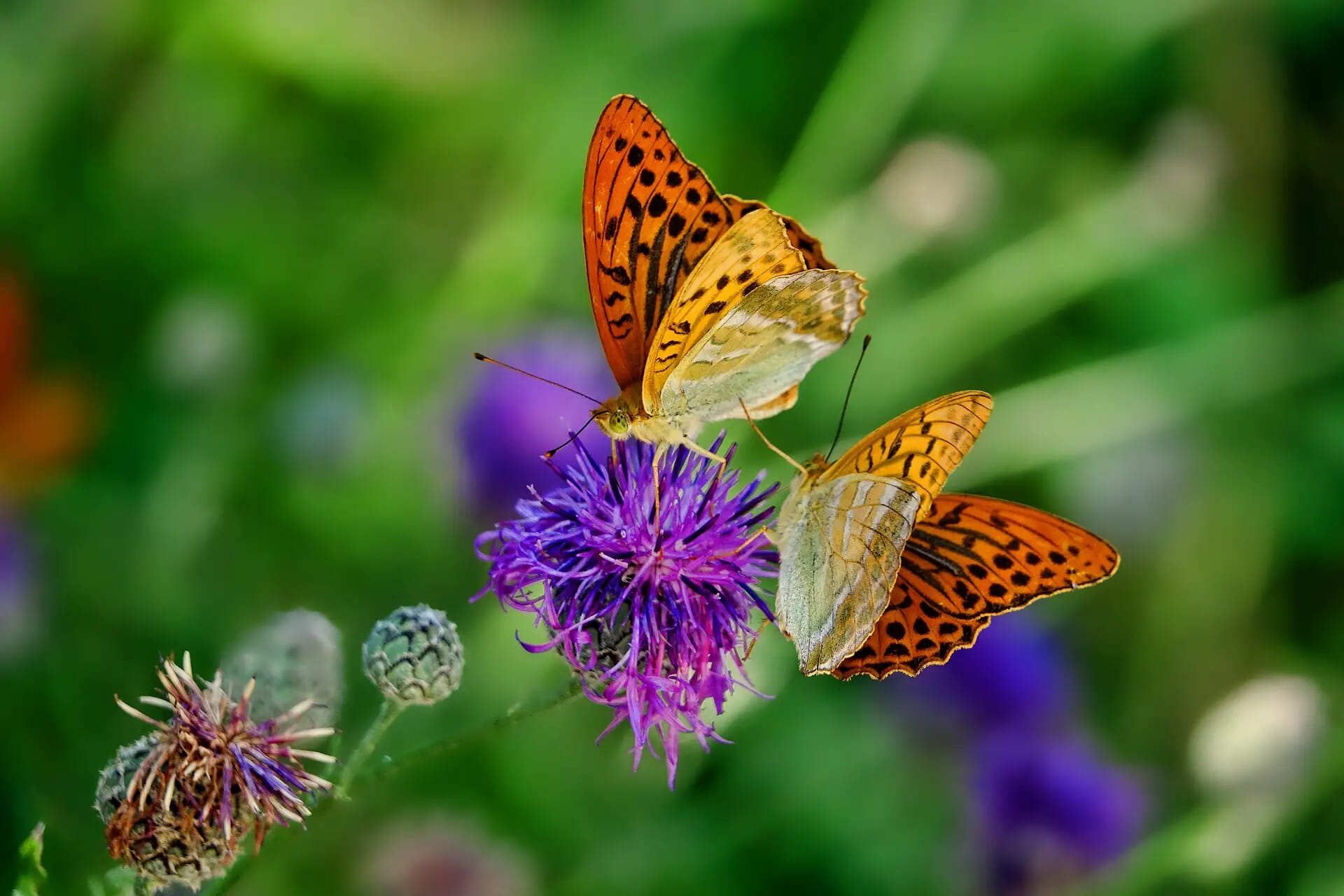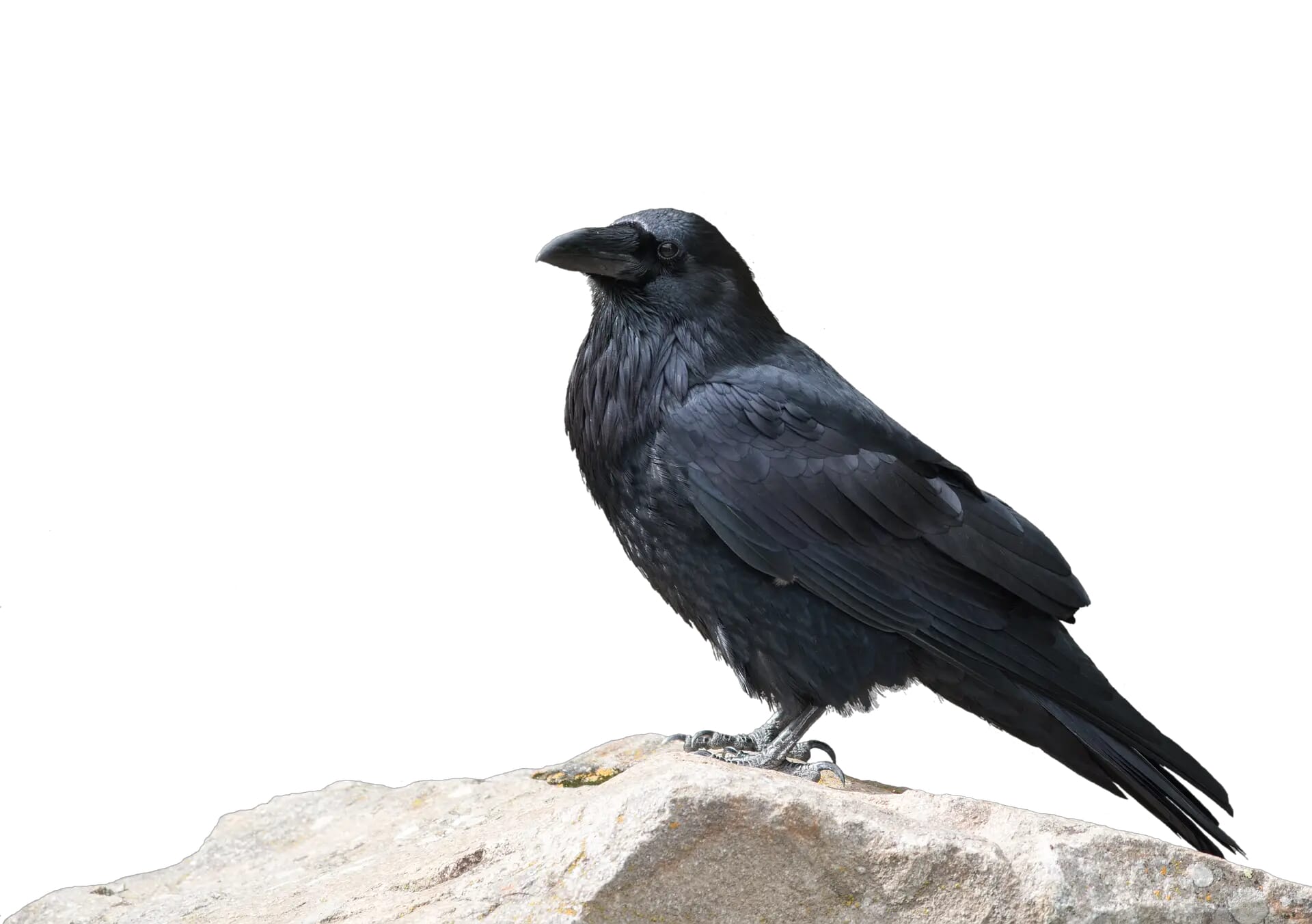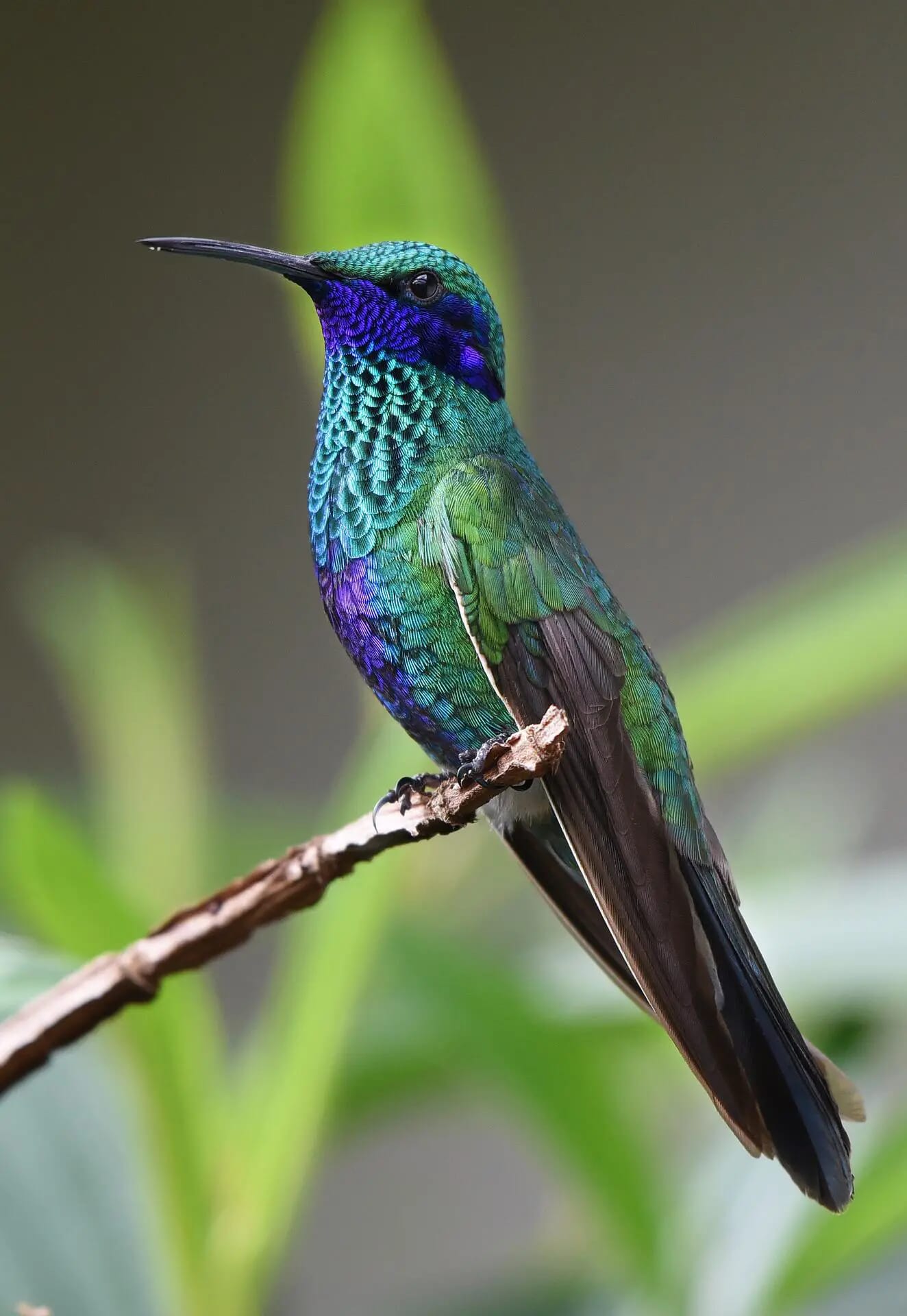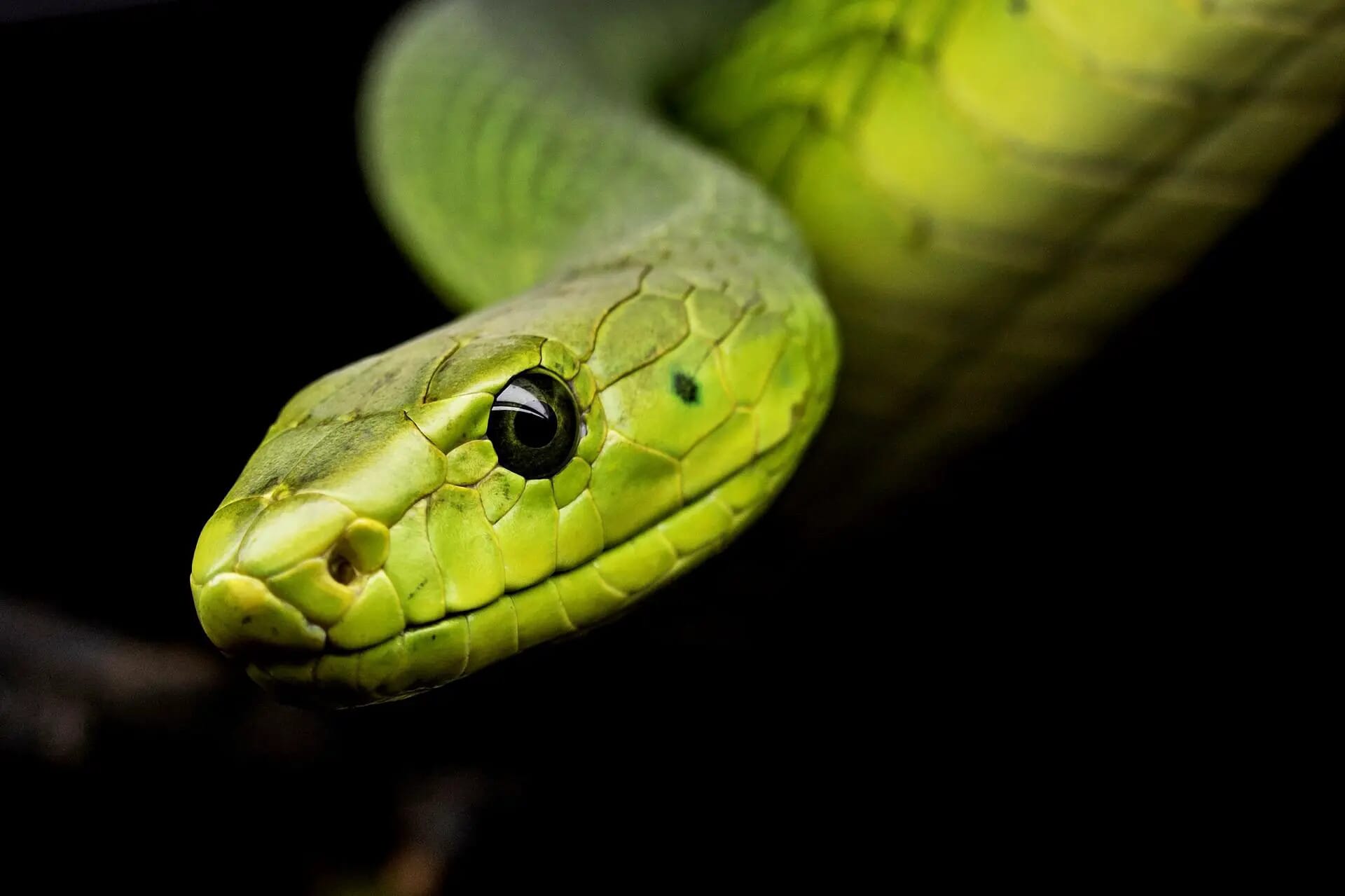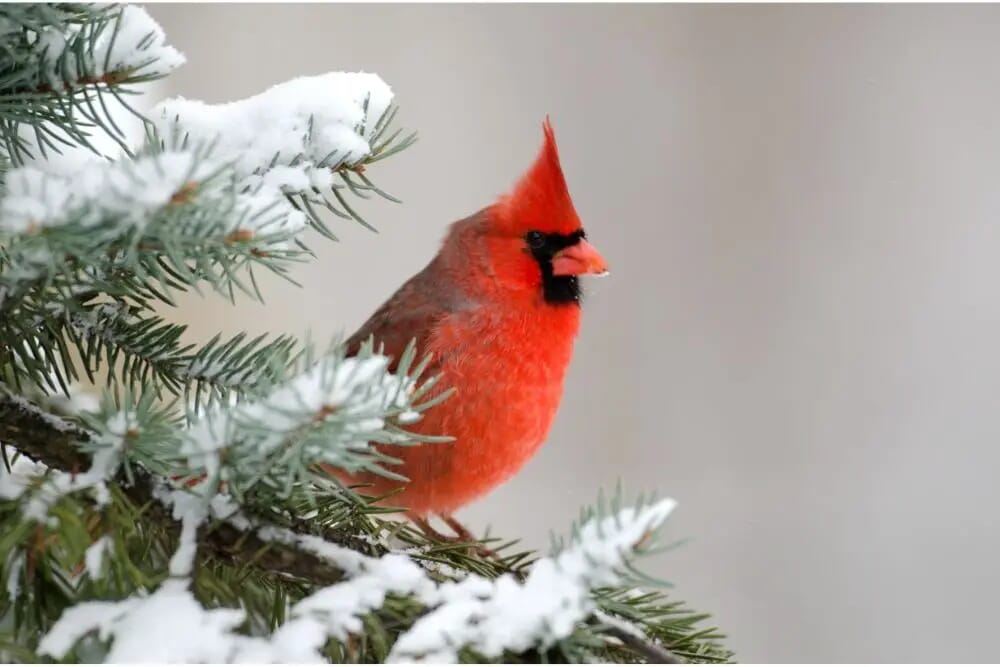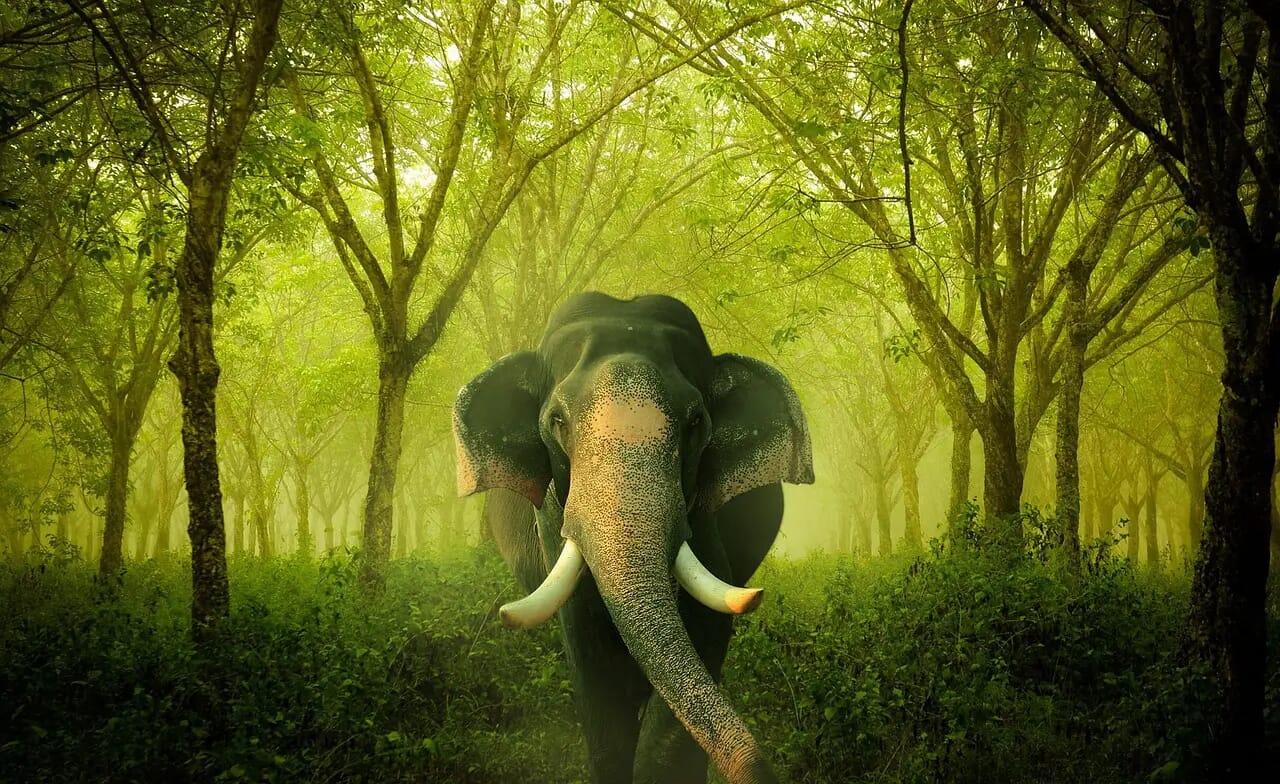Last Updated on December 29, 2023
Get ready to set out on a journey through the desert into the camel spiritual meaning world, where you will uncover profound insights, totemic wisdom, and hidden symbolism.
These resilient and enduring animals have a special place in the spiritual symbolism woven together; they represent perseverance, ingenuity, and the capacity to overcome difficult obstacles.
We’ll delve deeply into camel symbolism in this exploration, providing insights that go beyond their ability to tote large loads.
We’ll show you how camels can be totemic animals, including the difficulties they can guide you through, the deeds they can motivate you to do, and the life-changing opportunities they present to those who welcome them.
Prepare to traverse the wise sands and discover the mystery of the camel as a spirit.
Key Takeaways
- Symbol of Endurance: Camels are known for their ability to endure harsh conditions, symbolizing resilience, strength, and the capacity to withstand challenges.
- Symbol of Adaptability: Camels are adapted to desert environments, symbolizing adaptability, resourcefulness, and the ability to thrive in diverse conditions.
- Patience: Camels are patient animals, symbolizing the virtue of patience and the importance of waiting for the right time.
- Symbol of Conservation: Camels can conserve water, symbolizing the importance of resource conservation, sustainability, and the ability to make the most of limited resources.
- Symbol of Determination: The deliberate and steady pace of camels symbolizes determination, persistence, and the ability to achieve long-term goals through steady progress.
What Does a Camel Represent as a Spirit Animal and Totem Animal?
My inner self is greatly touched by the symbolism and meaning of the camel as a Spirit and Totem Animal.
The camel, renowned for its extraordinary fortitude and capacity to withstand severe arid environments, personifies attributes that motivate and direct me.
The camel is a Spirit Animal that stands for persistence, tolerance, and flexibility.
It serves as a reminder to persevere through difficult times and face life’s obstacles head-on.
Because of the camel’s propensity for lifting large loads, I should strive to carry out my responsibilities with grace and perseverance.
The camel guides me on my journey, teaching me how to be frugal with my energy and resources, just as it does with water and food in the desert.
This represents the value of equilibrium and resourcefulness in my life.
The camel is a Totem Animal that stands for safety and direction in navigating the wide, uncharted territories of life.
The Camel uses its keen senses to navigate through the shifting sands of the desert, so it inspires me to trust my instincts and intuition.
Essentially, the camel is a constant companion on my life’s journey, teaching me about perseverance, accountability, resourcefulness, and faith in my inner guidance.
Unearthing the Persistent Knowledge of the Camel Spirit Animal
| Type of Camel Symbolism | Meaning |
| Spiritual Meaning | Patience, love, and affection |
| Astrology & Zodiac Signs | Determination, dependability, and aversion to drama |
| African Folklore | The Guiamala, resilience, and resemblance to camels |
| Symbolic Meanings | Stamina, endurance, patience, wisdom, and journeys |
- If the camel frequently appears in your life, it signals an upcoming journey, whether emotional or physical.
- Facing such journeys requires ample support, and it’s essential to lean on close friends and family rather than isolating yourself.
- Acknowledge that feeling tired during life’s ventures is natural, and seeking support is a strength, not a weakness.
- Reflect on the meaning of the journey and consider what encounters lie ahead.
- The camel symbolizes experiencing the adventure alongside you; take time to appreciate the surroundings.
- Practice patience and avoid rushing to reach the end goal, ensuring you don’t miss the enjoyable moments along the way.

RELATED: Sheep: Spiritual Meaning, Dream Meaning, Symbolism & More
Examining the Camel Totem Animal’s Resilience and Guidance
To have the camel as a totem animal means you have focus and drive. However, this can mean that you prefer doing things by yourself to make sure your tasks are completed to your standard.
You don’t enjoy relying on others, because it reduces the amount of satisfaction you would get from completing the task!
However, the camel also enjoys taking time to graze and slow down. You may need to slow yourself down; there is no hurry to achieve things.
Some things take a bit of time to work themselves out, but this isn’t a cause for concern. You are on the right track.
Ultimately, this totem animal will support your independence and perseverance, but you shouldn’t automatically reject any help offer.
There can be a misinterpretation as being rude if others don’t know you well, and this help could also be the thing to help you realize your goal!
Unleashing the Camel Power Animal’s Strength and Empowerment
The camel as a power animal is there to guide you through a difficult time.
Whether this is on a long adventure, through an emotional adventure, or maybe just having no energy left – the camel will be there to share its secrets for persevering.
Essentially, the camel is there for you when you don’t feel comfortable accepting help from others. It lacks judgment and it only wants to help you succeed.
Camels have all of the tricks of the trade when it comes to surviving difficult environments!
One thing to remember is the camel may not be in use to working at your speed. They are slow animals that like to ponder their surroundings, so you will have to adjust your own approach if you want their assistance.
They will be an invaluable resource, and we can all learn a lot from the camel.

RELATED: Buck: Spiritual Meaning, Dream Meaning, Symbolism & More
Understanding the Mystifying Significance of Camel Dreams
- If a camel appears in your dream, it may suggest upcoming difficulties, but the main message is about endurance and the assurance that you can handle challenges.
- The camel symbolizes your potential, emphasizing that you are capable of achieving your goals.
- Another meaning is that you might be carrying repressed emotions and thoughts, and the camel encourages you to release them to avoid being drained.
- If the camel is carrying heavy luggage, it signifies experiencing stress or anxiety that may eat away at you if left untreated.
- The dream urges you not to hesitate to share your stress with others.
- The camel can also symbolize that help is on the way, indicating that relief from troubles is forthcoming.
- Multiple camels in a dream may suggest a potential reward, possibly financial, through your career or inheritance.
Exploring the Symbolic and Mythical Significance of Camel Images
| Culture | Camel Symbolism |
| Middle Eastern Folklore | Divine gift, nomadic spirit, and hospitality |
| Hinduism | Inner strength and perseverance |
| Ancient Egyptian Mythology | Connection to the sun god Ra |
| Islamic Tradition | Significance in the story of the Prophet Muhammad |
| Chinese Feng Shui | Balancing material and spiritual aspects |
The symbolic meaning of camels in mythology and folklore is multifaceted and profoundly effective to the human psyche.
The camel has long been associated with endurance, survival, and resilience in a variety of cultures, partly due to its extraordinary capacity to flourish in arid climates.
Camel Symbolism in Middle Eastern Folklore: The Desert Nomad’s Companion
The camel is revered in Middle Eastern cultures as a divine gift, especially in Arabian folklore.
It is closely linked to the Bedouin way of life, representing their spirit of nomadism and ability to survive in the harsh desert environment.
The camel serves the desert people as a source of milk and meat in addition to being a mode of transportation.
It represents hospitality and giving, two important aspects of Arabian culture.
Camel Symbolism in Hinduism: Agni and Inner Strength
The camel also has a symbolic meaning in Hinduism. It is connected to the idea of “Agni,” which stands for the fire of enlightened understanding.
One’s inner strength and perseverance on the spiritual path are compared to the camel’s ability to endure the intense heat of the desert.
Camel Symbolism in Ancient Egyptian Mythology: The Sun’s Endurance
The sun deity Ra was associated with camels in Egyptian mythology.
Its endurance and capacity for long-distance travel across the desert mirrored the sun’s daily path across the sky.
The camel was revered in Egyptian cosmology and frequently appeared in hieroglyphic art, highlighting its significance.
Camel Symbolism in Islamic Tradition: The Miracle at Birth
In addition, the camel has a significant role in Islamic tradition, especially in the narrative of the Prophet Muhammad.
It is thought that a white camel miraculously materialized during his birth, representing Islam’s message and the prophet’s divine mission. In Islamic cultures, camels are still highly esteemed.
The Universal Symbolism of the Camel: Endurance and Fortitude
The camel is a symbol of both spiritual and physical fortitude in many cultures.
Its existence in mythology and folklore serves as a reminder of humanity’s capacity to triumph over misfortune, adjust to difficult situations, and find food in the barren places of life.
The Camel’s timeless symbolism never fails to encourage people to keep going and make it through the dry terrain of their travels.
Camel in Native American Tradition: A Foreign Visitor
Given the geographic distance between the Americas and the regions where camels are native, the camel is not highly valued in Native American traditions.
However, in the present era of greater cultural awareness and interchange, camels could be viewed as representations of tenacity and adaptability—qualities that speak to certain Native American communities dealing with contemporary issues.
Camel in Celtic Mythology: The Exotic Wanderer
A major figure in Celtic mythology, which has its roots mainly in European cultures, is not the camel.
But if we take into account the camel’s exotic qualities and its presence on trade routes that linked far-off places, it might represent the notion of travel and adventure found in Celtic mythology.
The strange and foreign parts of the world outside of Celtic lands could be symbolized by the camel.
The Fascinating Presence of Camels in Japanese Culture
The camel represents an interesting combination of symbols in Japan. Various animals or elements can be combined with the camel’s symbolism to create new interpretations and representations.
Despite not being indigenous to Japan, camels have a significant cultural impact there, largely due to contemporary interpretations and global awareness.
In modern Japanese culture, camels may represent tenacity and flexibility—qualities that some people who are overcoming obstacles in their lives can relate to.
Despite being alien to Japan, the camel can be used as a blank canvas to add new layers of symbolism that reflect the changing views of a globalized world.
The Symbolic Role of Camels in Feng Shui Practices
The camel is a potent symbol in Feng Shui that can be used to balance opposing energies.
According to Feng Shui practitioners, the camel represents stability, endurance, and flexibility.
It is believed that arranging camel sculptures or figurines in your home in a deliberate manner will balance opposing energies and promote harmony between the material and spiritual facets of life.
In Feng Shui symbolism, the grounded camel complements the wise owl by fostering an atmosphere that encourages sagacity and resilience.
Seeking balanced prosperity and well-being, one can navigate life’s challenges with both practicality and insight by embracing the harmonious duality of the owl’s wisdom and the camel’s endurance.
RELATED: White Horse: Spiritual Meaning, Dream Meaning, Symbolism & More
The Spiritual Journey of the Christian Symbolism of the Camel
Camels are featured frequently throughout the Bible, probably most notably in the Nativity story when the three kings rode on camels to visit the baby Jesus in Bethlehem. However, they had many other roles in the Bible.
For example, they were often used to represent wealth because of their durability and usefulness when it came to traveling through deserts.
If they were given as gifts, this was a sign of extreme wealth and respect. It is still mentioned often that Pharaoh gave Abraham a camel as a gift, along with other animals.
Generally, however, the camel’s significance in the Bible is similar to that of all of the other meanings mentioned. It symbolizes patience, strength, and endurance.
Examining the Symbolism of Far Eastern Camel: Perspectives from Eastern Traditions
In the Chinese philosophy of Feng Shui, camel objects are useful to bring good luck and wealth to homes. They believe that camels will be able to watch over wealth and keep your finances safe, not just bring wealth to a home.
Deciphering the Symbolism of Australian Camel: Perspectives from the Abroad
While camels aren’t originally native to Australia, they do currently have a massive influx of them. This is actually because people brought them over to the country when British colonists struggled to navigate the desert-like environment.
They brought over the camels, and their riders, from India and Afghanistan. This was to help them make trips through the desert, and the camels were soon the backbone of Australian settlement.
Disclosing the Intense Symbolism of Camel Tattoos
- Camels have a huge number of meanings when it comes to tattoos. While they are not in use very often in mainstream tattoo art, they hold a lot of significance for those who do choose to have one.
- One of the most popular meanings behind camel tattoos is that of change. Camels are useful for taking people to new places, and they help others transition through life.
- Because of this, the camel tattoo may be able to inspire if you are feeling lost in life, and can’t work out which direction you should go. They remind people that no matter how long the journey you may take, you will always reach your goal in the end.
- Another meaning of a camel tattoo is courage. Camels need a huge amount of courage and perseverance to make the treacherous journeys. Thus they evolved to develop this resilience.
- This endurance is often in use in tales to inspire an act of similar courage in people, so this tattoo has a similar purpose.
- Finally, camel tattoos represent wisdom. They are incredibly clever animals that have to navigate difficult routes, as well as learn commands and obedience skills for these journeys. Because of this intelligence, they are often symbolic of wisdom, which is why many people have them as tattoos.
RELATED: Moose: Spiritual Meaning, Dream Meaning, Symbolism & More
Examining Camels’ Spiritual Significance
Many people and cultures consider the camel to be a messenger or spirit guide. Their patience and quiet intelligence will guide so many people through difficult times, and they give humans hope for the future.
Throughout multiple cultures, people considered camels as a symbol of love. This is because they are so laidback and placid, and very friendly.
This patient nature has solidified the view that they are a good symbol of affection – particularly in platonic relationships.
RELATED: Moose: Spiritual Meaning, Dream Meaning, Symbolism & More
Astrology’s Utilization of Camels and Their Significance to the Zodiac
The Camel as a primitive Zodiac sign falls under the Sun Sign of Sagittarius – between November and December.
People born under the Camel sign are determined, personable, and love to go on adventures. They are very good friends to have because they will travel any distance for you, and carry any of your burdens. They are solid, reliable, and friendly.
One thing to bear in mind with someone who has a camel Zodiac sign is that although they are kind and optimistic, they aren’t emotional.
Some people may try and take advantage of this, particularly because camels don’t often stand up for themselves. But, they always bounce back even if they are hurt.
Another thing to consider with camels is that they actively avoid drama. You shouldn’t try and bring them into any difficult situations or encourage them to pick a side in an argument – they will just walk away.
They need to be around other people who are fun and easygoing!
The Esteemed Position of Camels in African Folklore: An Interpretive Story
While African folklore doesn’t directly reference the camel itself, there is one mythical creature that is mentioned frequently – the Guiamala (Ghiamala).
If you take a look at pictures of the Guiamala, you will notice that it bears a striking resemblance to a camel.
It has the distinctive dromedary hump (or two, in some depictions) found in camels, and it also has a camel-shaped head. As well as these features, it also has the long legs and neck of a giraffe and seven pointy horns on its head.
People found the Guiamala in the African kingdoms of Giaca and Gadoua. For the most part, it was a harmless creature.
The main things it would eat were thorns and bushes because it often lived in desert-like climates.
Mythology doesn’t mention them. Most likely because they weren’t vicious or carnivorous creatures, but they are still very much remembered in African folklore.
Examining the Deep Symbolic Significance of Camels
Stamina And Endurance:
- Camels, surviving waterless deserts, symbolize stamina and endurance, teaching us to persevere through difficult times.
- Adapted to thrive in tough environments, camels inspire with their physical and spiritual strength.
- Perseverance is key in overcoming struggles, and by enduring, we can eventually reach our destination.
Patience:
- Calm and slow, camels emphasize the importance of patience and having one’s own pace.
- Teaching the art of patience, remind us that not everything can be completed immediately, and different paces make the journey more meaningful.
Journeys:
- Embracing journeys is a crucial symbolic meaning of camels.
- Their ability to navigate adventures inspires humans to overcome fear and travel, as journeys can bring unexpected emotions, jobs, and relationships.
Wisdom:
- Camels are wise beings, constantly observing their surroundings and learning various travel routes.
- Adapted to survive desert-like environments, camels exhibit a high level of wisdom often overlooked by people.
RELATED: Donkey: Spiritual Meaning, Dream Meaning, Symbolism & More

Interpreting a Camel: Adaptability and Ingenuity
| Occurrence | Interpretation |
| Dream | Resilience, resourcefulness, and endurance |
| Meditation | Inner strength and navigation through challenges |
| Waking Life | Making the most of available resources |
When you come across a camel in the real world or see one in a dream or meditation, it typically represents resiliency, creativity, and the capacity to face difficult circumstances.
The presence of the camel could be interpreted as a sign that you possess the inner fortitude to get through challenges and cross life’s deserts.
It motivates you to maximize the resources at your disposal and to remain unwavering in your goals.
Hearing a Camel Meaning: Pay Attention to Your Inner Strength
Although less common in symbolism, hearing a camel’s call or sound can serve as a reminder to tune in to your inner strength and intuition.
This auditory experience might be a sign that your inner voice and wisdom are trying to lead you through a situation, just as camels are recognized for their vocalizations.
To navigate difficult situations, have faith in your instincts and perseverance.
Seeing a Dead Camel Meaning: Reassessing Resilience
Whether in a dream or the real world, coming across a dead camel may indicate that you need to reevaluate your ability to bounce back and adjust.
It could imply that a once-trustworthy source of fortitude or assistance has run out or been lost.
This may indicate the need to investigate fresh methods, resources, or strategies for overcoming challenges.
Types Of Camel Symbolism: Adaptation, Patience, And Travel
Camel symbolism varies across cultures, but common themes include:
Adaptation:
Because camels are known for their ability to adapt to harsh environments, we can also adjust to difficult circumstances in life.
Patience:
Due to their slow and steady pace, Camels embody the value of patience, reminding us to take things one step at a time.
Travel and Journeys:
Camels are connected to long travels and exploration in many cultures. They can represent the journey you’ve taken in life and inspire you to welcome the unknown.
Endurance:
Camels can carry heavy loads for extended periods, signifying the strength to endure hardships or burdens.
Resourcefulness:
Their ability to thrive with limited resources teaches us resourcefulness and efficient use of what’s available.
Independence:
Camels often travel solo or in small groups, emphasizing the importance of self-reliance and independence.
Harmony with Nature:
In desert environments, Camels have a harmonious relationship with nature, teaching us to respect and adapt to our surroundings.
Transition:
Transitions, whether they be spiritual, emotional, or physical, are frequently associated with camels. They lead us through periods of transformation and adjustment.
Camel Sayings: Precepts from the Traveler in the Desert
| Saying | Meaning |
| “The straw that broke the camel’s back” | The last, heaviest weight |
| “A camel through the eye of a needle” | A nearly impossible task |
| “You can’t make a racehorse out of a donkey, but you can make a fast camel.” | Recognizing individual strengths |
| “Better ride on a camel than be carried by a horse.” | Emphasizing self-reliance |
“The camel carries the heavy burden but the journey is shared by all.” – This is a reminder that challenges in life are often collective, and we should support each other.
“Trust in God, but tie your camel.” – A popular Arabic proverb emphasizing the importance of taking practical precautions alongside faith.
“The straw that broke the camel’s back.” – It’s a metaphor for the final, seemingly minor, event that causes a person or situation to collapse under the accumulated stress.
“It is easier for a camel to go through the eye of a needle than for a rich man to enter the kingdom of God.” – It’s a biblical saying highlighting the challenges of material wealth in the pursuit of spiritual growth.
Camel Gods and Goddesses: Mythological Sacred Entities
Ushas (Vedic Hinduism): Ushas, the goddess of dawn, is sometimes associated with a golden camel, symbolizing the radiant morning light that dispels darkness.
Amun (Ancient Egyptian): Amun, a major god in Egyptian mythology, was sometimes depicted with the head of a camel, symbolizing his protective and nurturing qualities.
Camel Trivia & Facts with Symbolic Meanings
Dromedary vs. Bactrian: There are two main species of camels, the dromedary with one hump and the Bactrian with two humps. The dromedary’s single hump can symbolize balance and singularity of purpose, while the Bactrian’s duality can represent complementary forces.
The Ship of the Desert: Because they can maneuver through dunes like a ship at sea, camels are frequently referred to as the “ship of the desert”. This moniker highlights their versatility and skill in difficult situations.
Sacred in Islam: Camels hold great significance in Islam, being mentioned in the Quran. They are often used in rituals, especially during Hajj, the annual pilgrimage to Mecca.
Organizations that Guard Camels: Supporters of Sustainability
The Royal Society for the Conservation of Nature (RSCN): Based in Jordan, RSCN works to protect the Arabian camel, particularly the critically endangered Wild Arabian Camel (Camelus dromedarius).
The International Camel Organization (ICO): ICO is dedicated to promoting the welfare of camels and preserving their genetic diversity.
The Sahara Conservation Fund: This organization focuses on preserving the wildlife of the Sahara, including the critically endangered Saharan camel populations.
Local Camel Conservation Initiatives: Various countries with camel populations, such as India, Saudi Arabia, and Mongolia, have local organizations and initiatives dedicated to the conservation and welfare of camels.
RELATED: Elk: Spiritual Meaning, Dream Meaning, Symbolism And More
Frequently Asked Questions
What does it mean to dream of fish?
Depending on the situation, dreaming of fish can mean different things. Generally speaking, it frequently represents emotional qualities, fertility, and plenty. However, depending on the specifics of the dream, different meanings may apply.
Is there a universal meaning for different types of fish in symbolism?
Fish have a lot in common, especially fertility and abundance, but different fish species have different symbolic meanings in different cultures. Different fish species may have different cultural and contextual connotations.
What does it mean to see a dead fish?
In many cultural contexts, seeing a dead fish can represent disappointment, illness, or difficulties ahead. However, interpretations can vary depending on the dream symbolism and one’s personal beliefs.
How can I incorporate fish symbolism into my daily life for positive energy?
Using fish-themed décor or artwork, fish-themed jewelry, or even incorporating fish imagery into your mindfulness or meditation exercises are all ways to incorporate fish symbolism. It could act as a reminder of the benefits connected to fish symbolism.
Indeed, fish symbolism is used in many cultures’ rituals and practices, particularly when it comes to abundance, fertility, and protection. These customs frequently entail sacrifices, rituals, or literary and artistic symbolism.
What is the significance of the fish symbol in Christianity?
The ichthys, or fish, symbol in Christianity stands for trust in Jesus Christ. Its origins can be traced to the early Christians’ use of it as a covert symbol during persecution. Another meaning of the word “ichthys” is “Jesus Christ, Son of God, Savior.”
How can I use fish symbolism for personal growth and transformation?
Fish symbolism fosters flexibility, resiliency, and faith, all of which contribute to personal development. You can think about these traits and apply them to your day-to-day activities to overcome obstacles and welcome constructive change.
Indeed, there are numerous customs and beliefs associated with fish symbolism in Asian cultures, including Chinese and Japanese. For instance, in Japanese culture, koi fish stand for persistence and change, while in Feng Shui, goldfish are connected to prosperity and good fortune.
Do fish have a role in Native American symbolism?
Indeed, according to Native American customs, fish are symbolic of purification, sustenance, and the unity of all living things. Several tribes’ creation stories and rituals mention them.
How can I choose a fish-themed tattoo design with meaningful symbolism?
When choosing a tattoo with a fish pattern, think about the significance of the fish you are connected to. Look into the symbolic and cultural meaning of various fish species to select a design that aligns with your goals and principles.
- Unlocking The Parrot Spirit Animal Mystique: Symbolism, Totem, And Beyond - February 15, 2022
- Seagulls’ Mystical Flight: Symbolic Insights And Totemic Meanings - February 15, 2022
- Pegasus: Spiritual Meaning, Dream Meaning, Symbolism & More - February 15, 2022

